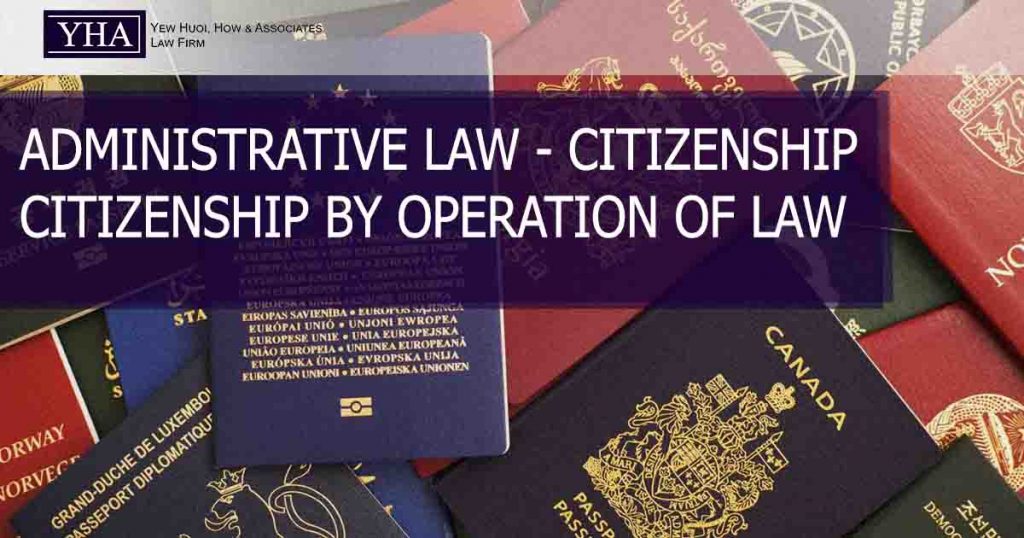I adopted a child that was found outside of a hospital in Kuala Lumpur, Malaysia when the child was 8 years old. I brought Kelvin (the child) to the National Registration Department (NRD) when he turned 12 years old for his MyKad registration. The officer issued a second birth certificate, leaving the parents’ name column blank, stating that such information was not available and that Kelvin’s nationality was “yet to be determined.” When the third birth certificate was issued, Kelvin was labelled as a “non-citizen” and the parents’ information was unobtainable.
Q: What can I do so that Kelvin will officially be a citizen of Malaysia?
A: You can rely on the concept of “jus soli” and “jus sanguinis” when it comes to determining the citizenship of a person (Section 1(a) of Part II of the Second Schedule of the Federal Constitution).
Q: What is “jus soli” and “jus sanguinis”?
A: “Jus soli” is citizenship that is based on the place of birth, while “jus sanguinis” is citizenship based on blood relations.
“Jus sanguinis” has two presumptions:
- Any child “found exposed” in any location is a citizen of the country,
- Unless this can be proven otherwise. (Section 1(a) of Part II of the Second Schedule of the Federal Constitution)
Q: What does “found exposed” mean?
A: It means that the child is abandoned and discovered by people at any location without the presence of their biological parents.
Q: Who needs to prove Kelvin’s citizenship?
A: The defendant who claims that the child is not abandoned (in this scenario, the NRD) will need to prove Kelvin’s mother’s identity.
Q: In the case whereby Kelvin can be proven that he is abandoned, does that mean that he is a citizen of Malaysia?
A: In that case, Kelvin will be presumed to be born to a mother that is a resident of Malaysia unless the contrary can be shown (Section 19B of Part III of Second Schedule of Federal Constitution). There is no evidence to say that Kelvin is a citizen of another country. This means that Kelvin will be a citizen of Malaysia.

